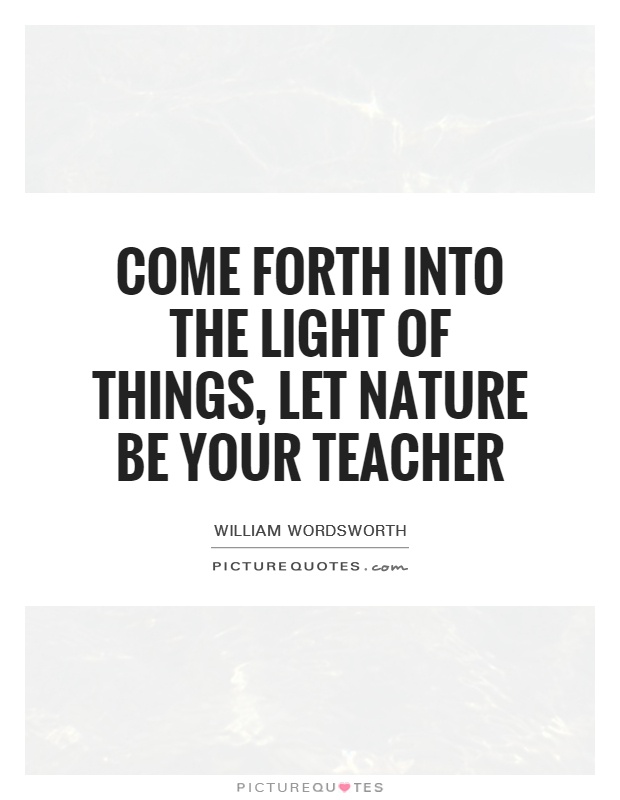Come forth into the light of things, let nature be your teacher

Come forth into the light of things, let nature be your teacher
William Wordsworth, a prominent figure in the Romantic literary movement, believed in the power of nature to inspire and teach us valuable lessons about life. His famous quote, "Come forth into the light of things, let nature be your teacher," encapsulates his belief in the importance of connecting with the natural world to gain a deeper understanding of ourselves and the world around us.Wordsworth's poetry often reflects his reverence for nature and his belief in its ability to nurture the human spirit. In his poem "Lines Composed a Few Miles Above Tintern Abbey," he describes the restorative power of nature and the solace it can provide in times of turmoil. He writes, "These beauteous forms, / Through a long absence, have not been to me / As is a landscape to a blind man's eye." Here, Wordsworth emphasizes the transformative effect of nature on the human soul, suggesting that by immersing ourselves in the natural world, we can gain a new perspective on life and find peace and solace in its beauty.
Wordsworth also believed that nature could serve as a moral guide, teaching us important lessons about humility, compassion, and interconnectedness. In his poem "The Tables Turned," he urges his readers to "Come forth into the light of things, / Let Nature be your teacher." By encouraging us to learn from nature, Wordsworth suggests that we can gain a deeper understanding of ourselves and our place in the world. He believed that by observing the natural world and its rhythms, we can learn valuable lessons about the importance of living in harmony with the earth and with each other.












 Friendship Quotes
Friendship Quotes Love Quotes
Love Quotes Life Quotes
Life Quotes Funny Quotes
Funny Quotes Motivational Quotes
Motivational Quotes Inspirational Quotes
Inspirational Quotes